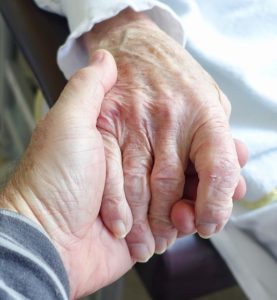Cleveland Clinic launches $6M consortium to research Lewy Body dementia
Cleveland Clinic is creating a new research group to study Lewy Body dementia, hoping to identify a biomarker than can help doctors diagnose the disease earlier. Dementia with Lewy Bodies (DLB) is a common form of dementia in older adults, including those with advanced Parkinson’s disease, but is often under-diagnosed.
The Dementia with Lewy Bodies Consortium will focus on the identification and character of Lewy Bodies, the piles of abnormal proteins that clog the brain’s cells and kill brain tissue. Dementia with Lewy Bodies (DLB) is a common form of dementia in older adults, including those with advanced Parkinson’s disease.
The new consortium will support research projects at eight university sites and will collaborate with the National Institute of Neurological Disorders and Stroke to share data repositories. The five-year program is funded by a $6 million grant from the National Institutes of Health.
“The Dementia with Lewy Bodies Consortium will be a vital network for coordinating research efforts for this common form of dementia,” says James Leverenz, MD, director of Cleveland Clinic Lou Ruvo Brain Health Center and prinicipal investigator for the consortium, in a Cleveland Clinic release. “Finding a biomarker for DLB is a top research priority and can ultimately improve the diagnosis and treatment of patients with this disease.”
The consortium reflects the latest trends of conducting simultaneous research across large populations rather than in small, isolated clinical trials. “DLB research has previously been hindered by the need for large groups of patients to study in a consistent manner over time,” Leverenz says. “The Dementia with Lewy Bodies Consortium will address this issue by bringing together a group of experts to study a large number of patients from across the country.”

Pamela Tabar was editor-in-chief of I Advance Senior Care from 2013-2018. She has worked as a writer and editor for healthcare business media since 1998, including as News Editor of Healthcare Informatics. She has a master’s degree in journalism from Kent State University and a master’s degree in English from the University of York, England.
Related Articles
Topics: Alzheimer's/Dementia











